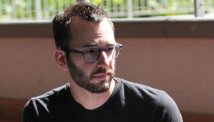STORY HIGHLIGHTS
- NEW: "We believe North Korea conducted its third nuclear test," a South Korean official says
- A magnitude 4.9 disturbance takes place in area of previous underground nuclear tests
- There is little or no history of natural seismic activity in the area
- North Korea said last month it would carry out a third nuclear test
Hong Kong (CNN) -- North Korea appeared to have conducted its third underground nuclear bomb test Tuesday, officials and experts said, as U.S. seismologists reported activity centered near the site of the secretive regime's two previous atomic blasts.
Although North Korea had warned the world of its plans to carry out a new test in a vitriolic statement last month, the move is still likely to rattle the security situation in Northeast Asia as analysts try to determine the power and complexity of the device the North is thought to have detonated.
If confirmed, it would be the first nuclear test under the North's young leader, Kim Jong Un, who appears to be sticking closely to his father's policy of building up the isolated state's military deterrent to keep its foes at bay, shrugging off the resulting international condemnation and sanctions.
It also provided a provocative reminder of a seemingly intractable foreign policy challenge for President Barack Obama ahead of his State of the Union address later Tuesday.
The area around the reported epicenter of the magnitude 4.9 disturbance in northeastern North Korea has little or no history of earthquakes or natural seismic hazards, according to U.S. Geological Survey maps. The disturbance Tuesday took place at a depth of about 1 kilometer, the USGS said.
Officials suspect a nuclear test
Government officials and security analysts had little doubt about the cause of the quake.
"We believe North Korea conducted its third nuclear test," said Kim Min-seok, a spokesman for the South Korean defense ministry. He added that the magnitude of the "artificial tremor" suggested the size of the blast was in the order of 6 to 7 kilotons, more powerful than the North's two prior nuclear tests.
"If we come to a final conclusion that it is a nuclear test," he said, "then we will consult with the international community and respond strongly."
Japanese Chief Cabinet Secretary Yoshihide Suga said that based on past cases, "We believe there is a possibility that North Korea conducted a nuclear test."
There were no initial reports concerning the activity on the North's state-run Korean Central News Agency on Tuesday.
"It's a nuclear test," said Jeffrey Lewis, director of the East Asia Nonproliferation Program at the James Martin Center for Nonproliferation Studies at the Monterey Institute of International Studies. "That magnitude and that location -- it's awfully unlikely it's anything else."
In Washington, a senior administration official said the United States was working to confirm a nuclear test.
The China Earthquake Network Center said on its website that the seismic disturbance in North Korea was a "suspected explosion."
News breaks at a quiet time in Asia
The suspected test took place at a time when several East Asian countries, including China, North Korea's major ally, are observing public holidays for the Lunar New Year, which began Sunday.
It also comes ahead of the birthday on Saturday of Kim Jong Il, the former North Korean leader who died in December 2011 and was succeeded by his son, Kim Jong Un.
North Korea announced last month that it was planning a new nuclear test and more long-range rocket launches, all of which it said were part of a new phase of confrontation with the United States.
It made the threats two days after the United Nations Security Council had approved the broadening of sanctions on the reclusive, Stalinist regime in response to the North's launching of a long-range rocket in December that succeeded in putting a satellite in orbit.
Pyongyang said it carried out the launch for peaceful purposes, but it was widely considered to be a test of ballistic missile technology.
U.S. analysts say North Korea's first bomb test, in October 2006, produced an explosive yield at less than 1 kiloton (1,000 tons) of TNT. A second test in May 2009 is believed to have been about two kilotons, National Intelligence Director James Clapper told a Senate committee in 2012.
By comparison, the bomb the United States dropped on Hiroshima in 1945 was a 15-kiloton device.
In May 2012, North Korea said it had amended its constitution to formally proclaim itself a "nuclear state."
CNN's Jethro Mullen reported and wrote from Hong Kong. CNN's K.J. Kwon in Seoul, South Korea; Yoko Wakatsuki in Tokyo; Dana Ford and Matt Smith in Atlanta, Georgia; and Elise Labott in Washington contributed to this report. Journalist Connie Young in Beijing also contributed reporting.
















